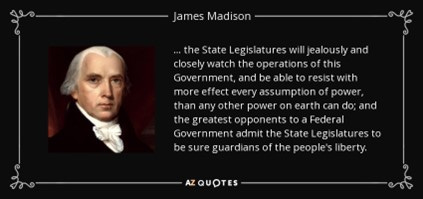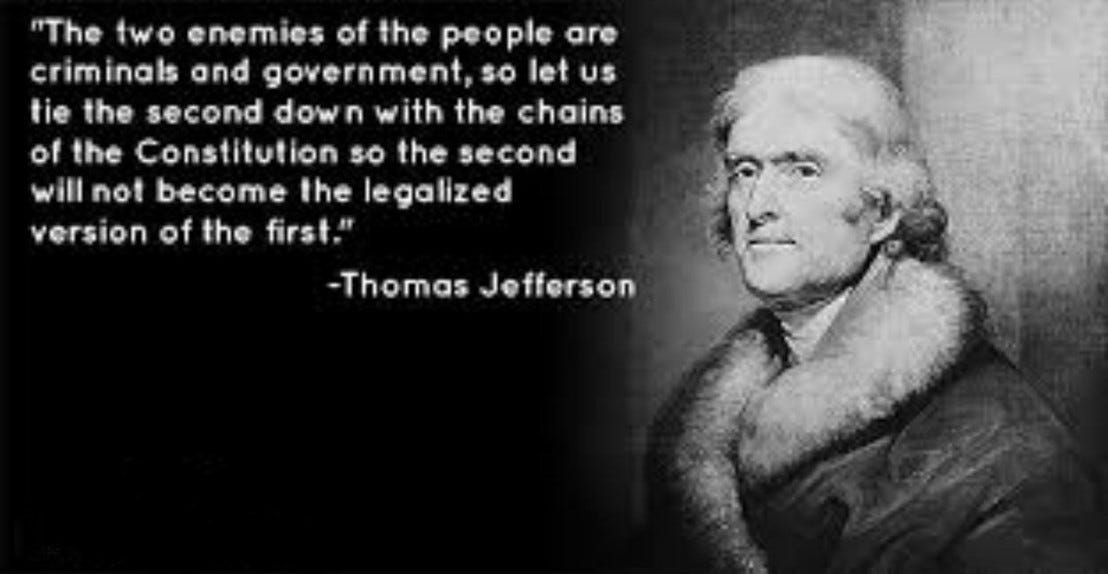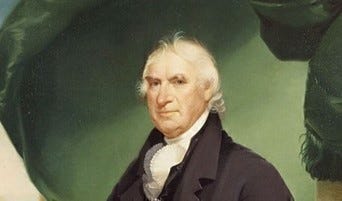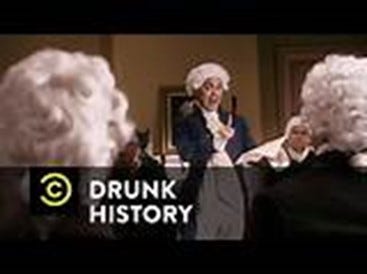A Modest Proposal, Part III: What Were the Deficiencies of America’s First Constitution, the Articles of the Confederation?
Most of us learned about America’s Revolutionary War in grade school, but did you learn about America’s first Constitution, the Articles of the Confederation (AOC)? In 1989, I graduated from the University of Delaware with enough credits for a history minor, requiring the entire span of American history, but I did not learn much about the AOC and Shay’s Rebellion was a sentence or two in a text book without much discussion. As “they” say, history is written by the victors, and the “Anti-Federalists” were not the victors.
Americans fought and won the American Revolution, against insurmountable odds, under the AOC. As discussed earlier in A Modest Proposal When the War Drums Start Banging, A Modest Proposal,Part II: Articles of the Confederation and Article V: The Convention of the States, Americans owe our cherished Bill of Rights to the demands of the “Anti-Federalists” who refused to sign the new Constitution without it.
In Anti-Federalist No. 3, “A Farmer” discusses 18th century “newspeak” of the term “Anti-Federalist”:
“…The term federalist is therefore improperly applied to themselves, by the friends and supporters of the proposed constitution. This abuse of language does not help the cause; every degree of imposition serves only to irritate but can never convince. They are national men, and their opponents, or at least a great majority of them, are federal, in the only true and strict sense of the word.”
Sound familiar? Those of us who see through the unmeritocratic veil of “DEI” are called nazis/fascists/racists. It is hardly a new tactic, but it is unfortunately lost by too many voters, and this fact is precisely why Plato warned that all democracies will eventually lead to tyranny.
Aside from the lack of a united currency and the inability to collect state debts owed in fighting the Revolutionary war, and the obvious lack of ability to facilitate communication that delayed the states to discuss and make decisions, what were the other deficiencies of the AOC that caused George Washington to desire the creation of a national government?
Let’s ask the biggest critic of the AOC, none other than Alexander Hamilton, who said in his pretentious scribblings in Federalist #84 that the people do not need a Bill of Rights.
In his letter to Gov. George Clinton (aka Cato), Hamilton whined, “There is a matter, which often obtrudes itself upon my mind, and which requires the attention of every person of sense and influence, among us. I mean a degeneracy of representation in the great council of America. It is a melancholy truth Sir, and the effects of which we dayly see and feel, that there is not so much wisdom in a certain body, as there ought to be, and as the success of our affairs absolutely demands. Many members of it are no doubt men in every respect, fit for the trust, but this cannot be said of it as a body. Folly, caprice, a want of foresight, comprehension and dignity, characterise the general tenor of their actions. Of this I dare say, you are sensible, though you have not perhaps so many opportunities of knowing it as I have.” Maybe Hamilton was thinking, “what can be, unburdened by what has been.”
Hamiliton complained in Federalist No. 15 , 21 and 22 about state sovereignty and equality. “The right of equal suffrage among the States is another exceptionable part of the confederation. Every idea of proportion, and every rule of fair representation conspire to condemn a principle, which gives to Rhode-Island an equal weight in the scale of power with Massachusetts, or Connecticut, or New-York; and to Delaware, an equal voice in the national deliberations with Pennsylvania or Virginia, or North-Carolina. Its operation contradicts that fundamental maxim of republican government, which requires that the sense of the majority should prevail. A circumstance, which crowns the defects of the confederation, remains yet to be mentioned--the want of a judiciary power.”
And what happened when we established a Supreme Court? Nine unelected supreme court justices began making “law of the land” (i.e., Roe v. Wade) which is clearly a violation of Article 1, Section 1 of the Constitution.
“Conceiving that an individual independence of the States is utterly irreconcileable with their aggregate sovereignty; and that a consolidation of the whole into one simple republic would be as inexpedient as it is unattainable, I have sought for some middle ground, which may at once support a due supremacy of the national authority, and not exclude the local authorities wherever they can be subordinately useful.
A Government composed of such extensive powers should be well organized and balanced. The Legislative department might be divided into two branches; one of them chosen every years by the people at large, or by the legislatures; the other to consist of fewer members, to hold their places for a longer term, and to go out in such a rotation as always to leave in office a large majority of old members. Perhaps the negative on the laws might be most conveniently exercised by this branch. As a further check, a council of revision including the great ministerial officers might be superadded.” How did that work out?
Federal Farmer[1], No. 17 dated January 23, 1788, concurred with reservations:
“I am not about to defend the confederation, or to charge the proposed constitution with imperfections not in it; but we ought to examine facts, and strip them of the false colourings often given them by incautious observations, by unthinking or designing men. We ought to premise, that laws for raising men and monies, even in consolidated governments, are not often punctually complied with.”
James Madison was a real Federalist and realized that a Bill of Rights was absolutely necessary and eventually followed Thomas Jefferson’s direction of true federalism.
But what would they say now that the federal government of all three branches is too big, too corrupt and out of control? Would they agree that the “Anti-Federalists” were correct in their assessment in 1787 that a central government will grow out of control, as warned in the Anti-Federalist Papers?
The Anti-Federalists predicted everything that happened as if they held a crystal ball. But there was no crystal ball; they simply understood history and knew that human nature is self-serving, and that those with power tend to want more power, more money and ultimately, corruption grows beyond the people’s control. Welcome to 21st century America.
In 1787, Thomas Jefferson was serving as Ambassador to France while James Madison was drafting the Constitution and writing the Federalist Papers with John Jay and Alexander Hamilton.
What did Thomas Jefferson say about the new Constitution? “My general plan would be to make the states one as to everything connected with foreign nations, and several as to everything purely domestic. But with all the imperfections of our present government, it is without comparison the best existing or that ever did exist.” That sounds like the Articles of the Confederation.
The “Anti-Federalist” author, Cato, was indeed wary of the new Constitution when he wrote to the citizens of New York, “This form of government is handed to you by the recommendations of a man who merits the confidence of the public; but you ought to recollect, that the wisest and best of men may err, and their errors, if adopted, may be fatal to the community.”
Historian Jeffrey Rogers Hummel said “Most of the Amendments comprising the Bill of Rights restricted the national government’s direct authority over its citizens. Only one section dealt with the relationship between the state and central governments; the 10th Amendment “reserved” to the states or the people all powers not ‘delegated to the United States by the Constitution.’ Nothing better illustrates that, whereas the Anti-Federalists had lost on the ratification issue, they had won on the question of how the Constitution would operate. The Constitution had not established a consolidated national system of government as most Federalists had at first intended, but a truly federal system, which is what the Anti-Federalists had wanted. In simpler terms, the Federalists got their Constitution, but the Anti-Federalists determined how it would be interpreted.” And how did that work out?
We are in the midst of a struggle for our freedom like we have never experienced before, and the likelihood that the “deep state” will relinquish power again seems unlikely, unless there is a landslide election. Maybe. Even if “conservatives” gain the power back, how likely is it that a more conservative “federal” government will eliminate enough of the central government to eliminate the enormous corruption? And we need to end the private banking cartel, the Federal Reserve, while we’re at it. But how do we do that? We could start with a complete audit. But, how long have conservatives been asking for an audit of the Federal Reserve?
When nearly half of the electorate is dependent on the government to survive, it is not looking good.
What other options do we have now? Nullification of nearly every single unconstitutional action and/or agency? We can’t even eliminate low-hanging fruit like the federal Department of Education. If America is headed for a national divorce, then a revised Articles of the Confederation might be the best path forward. Let each individual state live and let live spending their own dollars with no federal funding. It would certainly be better than enduring another civil war.
We should never forget that the ink was barely dry before the first attack on the Bill of Rights began in 1798 with John Adams’s Sedition Act. History has a way of repeating itself, especially when the electorate has not studied history very well. At the least, let’s try a little “Drunk History.” As some say, a drunk speaks a sober mind. We can either laugh or cry!
[1] “A Farmer” was the nome de plume of several Anti-Federalist writers.











Splendid. Thanks for the article and the lack of pretension and not once talking down to those you are speaking with. I really appreciate this.
KEEP PREACHING IT! When the system collapses, we will have the opportunity to once again set up the Articles as law of the land